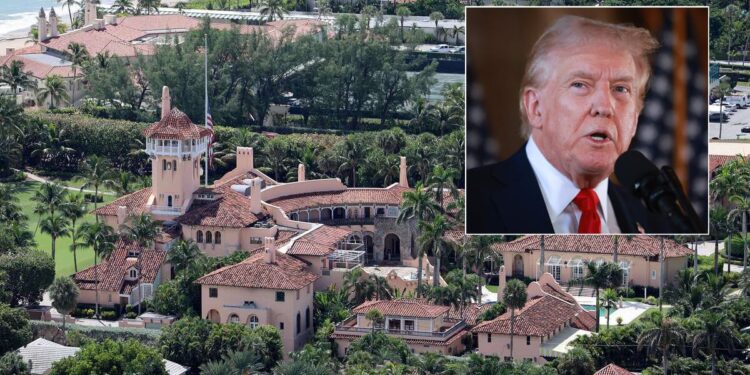Donald Trump has filed a $100 million lawsuit against the US Justice Department for attempted “political persecution” during the FBI’s 2022 search of his Florida home for classified documents.
• Also read: Donald Trump in interview with Elon Musk live on X tonight
• Also read: Donald Trump’s New Lie: Kamala Harris’ Crowds Were Created by AI
• Also read: Donald Trump campaign says it was hacked
The complaint filed last week and seen by AFP on Monday accuses Attorney General Merrick Garland and FBI chief Christopher Wray of “departing from protocol (applied to former presidents, editor’s note) to hurt” Mr. Trump.
“Garland and Wray should never have approved a search and subsequent indictment,” says the complaint, which seeks $100 million in damages and $15 million in legal costs.
AFP
The Republican candidate for the November presidential election constantly claims, without proof, that the Democrats are using the justice system against him, not hesitating to file complaints and then withdraw.
In May, Donald Trump had already provoked disbelief after suggesting that the FBI search warrant showed that President Joe Biden wanted him dead.
The court documents contained standard FBI language that its agents are authorized to use deadly force if someone is in imminent danger.
AFP
In a rare statement, the FBI assured that “there was no deviation from the norm in this case” conducted on August 8, 2022. Donald Trump was not in Florida on the day of the search.
The former president was sued in Florida for his alleged negligent handling of classified documents found at his Mar-a-Lago residence after he left the White House. A federal judge dismissed the charges in mid-July, but the special prosecutor investigating the case has appealed the decision.
The case alleges that Donald Trump compromised national security by keeping classified documents, including military plans and information about nuclear weapons, at home after his presidency ended, instead of handing them over to the National Archives as required by law.
He is also accused of attempting to destroy evidence in the case. The most serious charges carry up to 10 years in prison.



